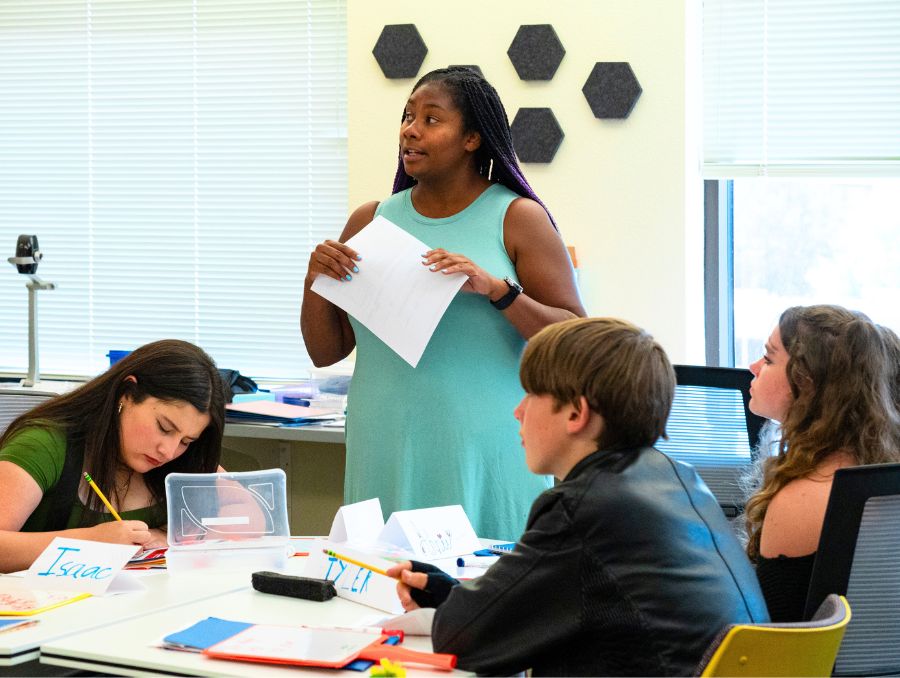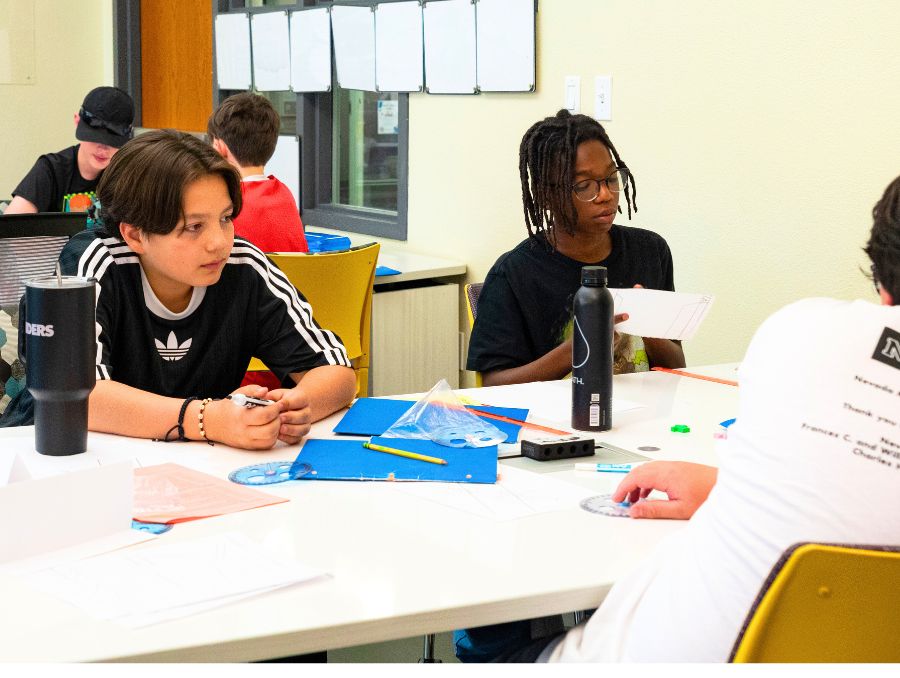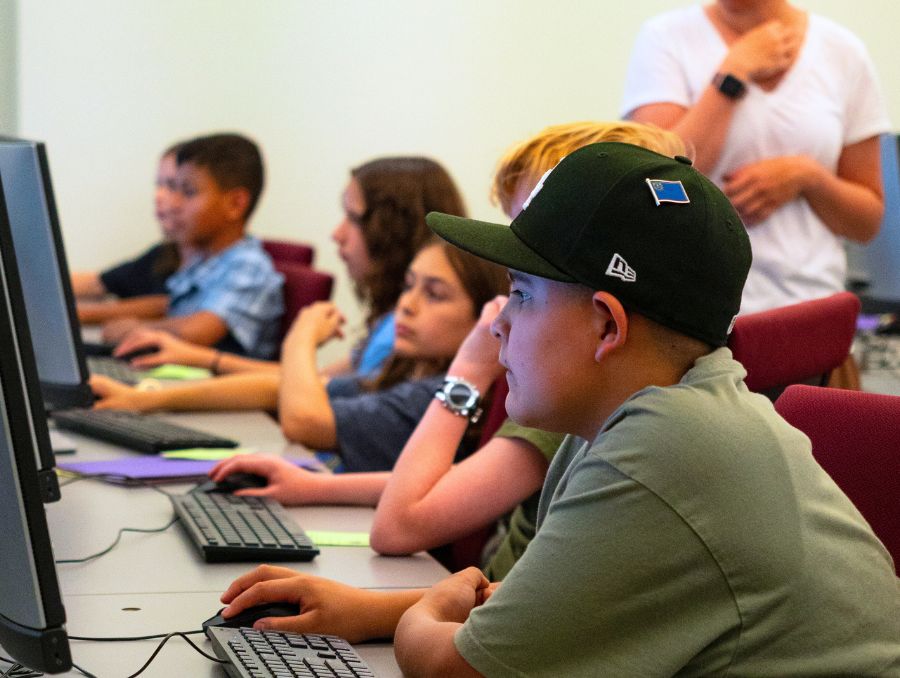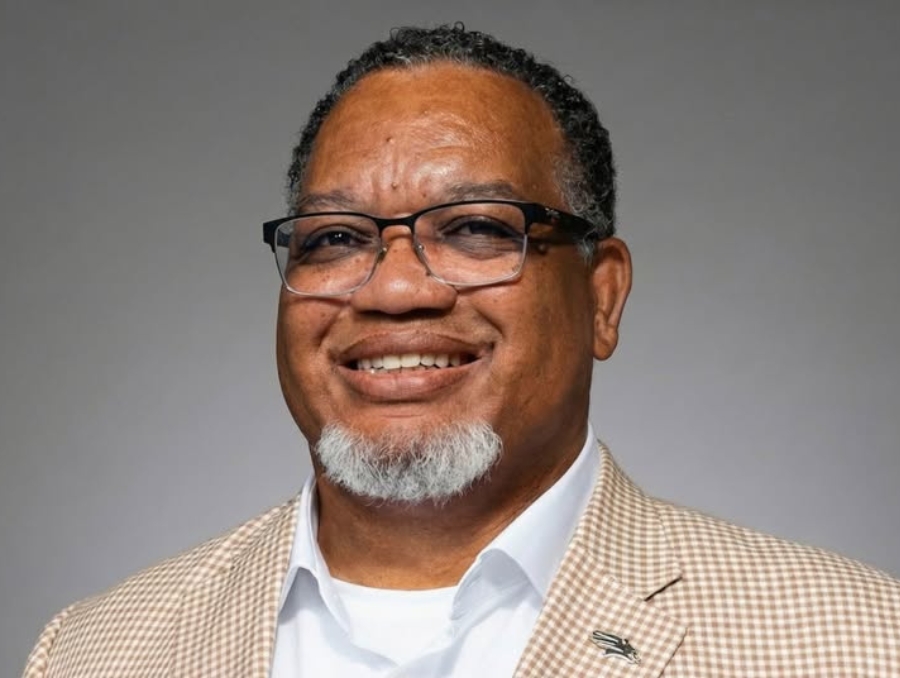This year marks the 26th anniversary of the College of Education & Human Development's Nevada Math & Technology Camp. This residential camp for middle schoolers aims to enhance mathematics skills and build awareness of mathematics and technology-based careers.
The camp is led by Lynda Wiest, Ph.D., chair of the Department of Educational Studies, and Heather Crawford-Ferre, Ph.D., education programs professional at the Nevada Department of Education. Wiest has been the camp director since its inception in 1998, and Crawford-Ferre has been with the camp since 2007.
The camp runs for one week and is open to Nevada students entering 7th or 8th grade. Each year, it hosts approximately 50 students. Middle school age is a crucial time for students to start considering their career paths, and the camp aims to provide them with the necessary preparation to enter STEM fields and foster favorable attitudes toward STEM.
“Nowadays, they have to decide what courses they're going to take in middle school and high school to lead toward certain careers, and they can't afford to wait too long to do the preparation needed to get there,” says Wiest. “We're trying to help them start thinking about this.”
Both groups learn many of the same topics, which are chosen by Wiest, but the individual instructors choose their own content to teach. All students learn problem solving, geometry, spatial skills and technology. The younger students also work with data analysis and learn coding through Code.org, while the older students are introduced to algebra and learn graphing with Desmos.

“It's really fun, and I love how it gives an opportunity to people who maybe wouldn't know about STEM otherwise,” says one student. “I love math because I've been taught it [at] such a young age. And I've always just loved problem solving.”
Wiest built her curriculum around the topics that were most important for students to learn for the future, as well as the topics in which students typically performed less well. The topics have largely remained the same throughout the 27 years of the program.
Wiest believes that the program's top impact is influencing students’ attitudes about STEM learning. “If I perceive that I can do this, if I perceive that this is accessible to me, and if I perceive that this is useful to and appropriate for me, I can do the things it takes to get there,” she says.
The program also boosts students’ confidence in STEM subjects by providing a safe space to expand their skills, while reducing summer learning loss.
“The way they teach us the math we're learning is super open and safe. It's not like the school community where you might be scared to share your answers,” says one student. “You can be free to answer how you want to.”
Wiest believes that there is a significant potential for these students to pursue careers in STEM fields while remaining in Nevada.
“We think, of course, there's a lot of potential here in Nevada for young people to go into the STEM fields, and we do our best to help prepare them.”

The most important part of the program, to Wiest, is its impact on how students view STEM learning.
“I think that the most important thing is that we influence their attitudes, confidence and belief systems,” Wiest says. “Raising their awareness and interest, providing role models and all the things that affect attitudes - I really think that's what’s most important for kids this age.”
















